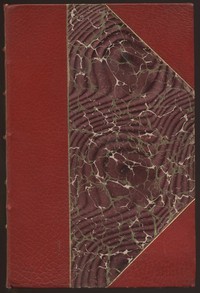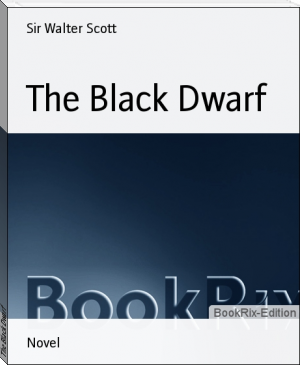Old Mortality, Volume 2. by Walter Scott (most important books to read txt) 📗

- Author: Walter Scott
Book online «Old Mortality, Volume 2. by Walter Scott (most important books to read txt) 📗». Author Walter Scott
Thus backed and comforted, Poundtext resolved magnanimously to await the coming of the Cameronians to the general rendezvous.
Burley and his confederates had drawn together a considerable body of these sectaries, amounting to a hundred horse and about fifteen hundred foot, clouded and severe in aspect, morose and jealous in communication, haughty of heart, and confident, as men who believed that the pale of salvation was open for them exclusively; while all other Christians, however slight were the shades of difference of doctrine from their own, were in fact little better than outcasts or reprobates. These men entered the presbyterian camp, rather as dubious and suspicious allies, or possibly antagonists, than as men who were heartily embarked in the same cause, and exposed to the same dangers, with their more moderate brethren in arms. Burley made no private visits to his colleagues, and held no communication with them on the subject of the public affairs, otherwise than by sending a dry invitation to them to attend a meeting of the general council for that evening.
On the arrival of Morton and Poundtext at the place of assembly, they found their brethren already seated. Slight greeting passed between them, and it was easy to see that no amicable conference was intended by those who convoked the council. The first question was put by Macbriar, the sharp eagerness of whose zeal urged him to the van on all occasions. He desired to know by whose authority the malignant, called Lord Evandale, had been freed from the doom of death, justly denounced against him.
"By my authority and Mr Morton's," replied Poundtext; who, besides being anxious to give his companion a good opinion of his courage, confided heartily in his support, and, moreover, had much less fear of encountering one of his own profession, and who confined himself to the weapons of theological controversy, in which Poundtext feared no man, than of entering into debate with the stern homicide Balfour.
"And who, brother," said Kettledrummle, "who gave you authority to interpose in such a high matter?"
"The tenor of our commission," answered Poundtext, "gives us authority to bind and to loose. If Lord Evandale was justly doomed to die by the voice of one of our number, he was of a surety lawfully redeemed from death by the warrant of two of us."
"Go to, go to," said Burley; "we know your motives; it was to send that silkworm—that gilded trinket—that embroidered trifle of a lord, to bear terms of peace to the tyrant."
"It was so," replied Morton, who saw his companion begin to flinch before the fierce eye of Balfour—"it was so; and what then?—Are we to plunge the nation in endless war, in order to pursue schemes which are equally wild, wicked, and unattainable?"
"Hear him!" said Balfour; "he blasphemeth."
"It is false," said Morton; "they blaspheme who pretend to expect miracles, and neglect the use of the human means with which Providence has blessed them. I repeat it—Our avowed object is the re-establishment of peace on fair and honourable terms of security to our religion and our liberty. We disclaim any desire to tyrannize over those of others."
The debate would now have run higher than ever, but they were interrupted by intelligence that the Duke of Monmouth had commenced his march towards the west, and was already advanced half way from Edinburgh. This news silenced their divisions for the moment, and it was agreed that the next day should be held as a fast of general humiliation for the sins of the land; that the Reverend Mr Poundtext should preach to the army in the morning, and Kettledrummle in the afternoon; that neither should touch upon any topics of schism or of division, but animate the soldiers to resist to the blood, like brethren in a good cause. This healing overture having been agreed to, the moderate party ventured upon another proposal, confiding that it would have the support of Langcale, who looked extremely blank at the news which they had just received, and might be supposed reconverted to moderate measures. It was to be presumed, they said, that since the King had not intrusted the command of his forces upon the present occasion to any of their active oppressors, but, on the contrary, had employed a nobleman distinguished by gentleness of temper, and a disposition favourable to their cause, there must be some better intention entertained towards them than they had yet experienced. They contended, that it was not only prudent but necessary to ascertain, from a communication with the Duke of Monmouth, whether he was not charged with some secret instructions in their favour. This could only be learned by dispatching an envoy to his army.
"And who will undertake the task?" said Burley, evading a proposal too reasonable to be openly resisted—"Who will go up to their camp, knowing that John Grahame of Claverhouse hath sworn to hang up whomsoever we shall dispatch towards them, in revenge of the death of the young man his nephew?"
"Let that be no obstacle," said Morton; "I will with pleasure encounter any risk attached to the bearer of your errand."
"Let him go," said Balfour, apart to Macbriar; "our councils will be well rid of his presence."
The motion, therefore, received no contradiction even from those who were expected to have been most active in opposing it; and it was agreed that Henry Morton should go to the camp of the Duke of Monmouth, in order to discover upon what terms the insurgents would be admitted to treat with him. As soon as his errand was made known, several of the more moderate party joined in requesting him to make terms upon the footing of the petition intrusted to Lord Evandale's hands; for the approach of the King's army spread a general trepidation, by no means allayed by the high tone assumed by the Cameronians, which had so little to support it, excepting their own headlong zeal. With these instructions, and with Cuddie as his attendant, Morton set forth towards the royal camp, at all the risks which attend those who assume the office of mediator during the heat of civil discord.
Morton had not proceeded six or seven miles, before he perceived that he was on the point of falling in with the van of the royal forces; and, as he ascended a height, saw all the roads in the neighbourhood occupied by armed men marching in great order towards Bothwell-muir, an open common, on which they proposed to encamp for that evening, at the distance of scarcely two miles from the Clyde, on the farther side of which river the army of the insurgents was encamped. He gave himself up to the first advanced-guard of cavalry which he met, as bearer of a flag of truce, and communicated his desire to obtain access to the Duke of Monmouth. The non-commissioned officer who commanded the party made his report to his superior, and he again to another in still higher command, and both immediately rode to the spot where Morton was detained.
"You are but losing your time, my friend, and risking your life," said one of them, addressing Morton; "the Duke of Monmouth will receive no terms from traitors with arms in their hands, and your cruelties have been such as to authorize retaliation of every kind. Better trot your nag back and save his mettle to-day, that he may save your life to-morrow."
"I cannot think," said Morton, "that even if the Duke of Monmouth should consider us as criminals, he would condemn so large a body of his fellow-subjects without even hearing what they have to plead for themselves. On my part I fear nothing. I am conscious of having consented to, or authorized, no cruelty, and the fear of suffering innocently for the crimes of others shall not deter me from executing my commission."
The two officers looked at each other.
"I have an idea," said the younger, "that this is the young man of whom Lord Evandale spoke."
"Is my Lord Evandale in the army?" said Morton.
"He is not," replied the officer; "we left him at Edinburgh, too much indisposed to take the field.—Your name, sir, I presume, is Henry Morton?"
"It is, sir," answered Morton.
"We will not oppose your seeing the Duke, sir," said the officer, with more civility of manner; "but you may assure yourself it will be to no purpose; for, were his Grace disposed to favour your people, others are joined in commission with him who will hardly consent to his doing so."
"I shall be sorry to find it thus," said Morton; "but my duty requires that I should persevere in my desire to have an interview with him."
"Lumley," said





Comments (0)